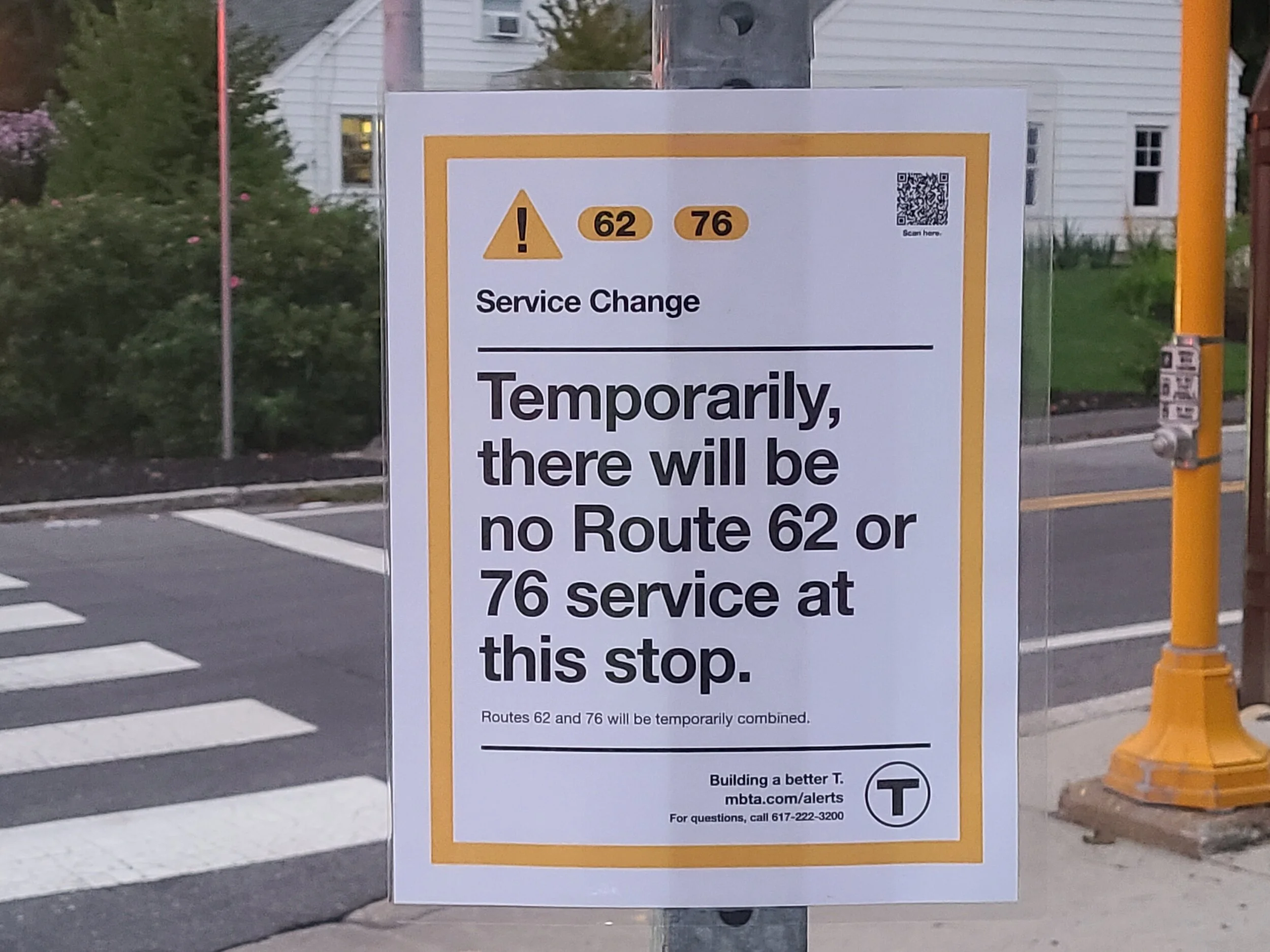MBTA service cuts posted recently in Lexington, MA
2020 has been a tumultuous year for all aspects of our lives, yet as we enter Q4 there remains a substantial amount of “unfinished business” as it relates to the economy. Why is that so important? Because the economy is a market of buyers and sellers, each of whom makes decisions that make financial sense to them, and ultimately affects many others.
People make financial decisions all the time based upon their economic expectations, and that’s why “contagion” can be financial too. Don’t believe me? If you ever held off on a large purchase because you hoped to buy something for a lower price in the future (like buying a car at model year end for a steep discount), or cut back on discretionary spending (i.e. travel and entertainment) due to a recession, you’ve experienced this yourself.
Don’t forget; this isn’t bad either, because the alternative to making financial decisions based upon economic considerations is making these decisions without regard for economic considerations. After all, hearing in hindsight “you knew the economy was weak, and you went ahead with it, anyway?” doesn’t sound so great.
Too often, issues come to a head, and when they aren’t dealt with people tend to forget about them until severe (and preventable) consequences reappear. This is among the reasons that markets tend to go up like an escalator, but down like an elevator.
With that in mind, here are several trends I’m following as we approach the end of 2020:
Consumer stimulus bills
One of the hotly debated topics towards the end of the summer was whether (or how large) any additional federal stimulus for consumers might be. Why is this so important?
Because we saw a very large increase in unemployment levels as a result of temporary (and permanent) business closures, and 70% of the US economy is driven by consumer spending.
If any business derived 70% of its business from a single customer, or group of them, you can believe investors and management would be laser focused on the financial health of that customer.
Qualifying households received $1,200 checks in the spring (married with income below $198K, or single below $99K), and expanded unemployment benefits only recently expired. That’s why I’d argue that we don’t know what consumer spending truly looks like yet.
Eviction and foreclosure moratoriums
This is a topic that has drawn a lot of attention, given that people who might be evicted would face dire consequences under normal circumstances, let alone during a public health crisis.
On top of that, there has been a patchwork of well intentioned, but poorly coordinated Federal orders and State orders (MA order expires on 10/17) to suspend evictions and foreclosures.
This is complicated not only in terms of who can qualify, but also because even when someone can’t be evicted for nonpayment, it doesn’t necessarily relieve them of the financial obligation to pay (eventually), and in some cases landlords can apply penalties for nonpayment.
While large landlords get no sympathy, individual landlords (i.e. people with rental properties) have often tied their ability to avoid defaulting on a mortgage to the financial health of people with fewer financial resources than themselves (i.e. renters).
Even the best designed and communicated programs have qualification criteria, and it’s likely that some people may not pay without realizing what the consequences are.
State and local budget cuts
This has been an odd recession in that job losses have been focused on lower-wage jobs (like in retail and restaurants, which need to be performed in person) so income tax receipts have been less affected.
Alternatively, revenue collected from travel-oriented activities (hotels, toll roads, airports, and gasoline taxes) have been badly affected.
Public transit systems have been especially challenged with their high fixed operating costs and precipitous decline in ridership, causing consideration of permanent service cuts and/or fare hikes.
Overall, state and local governments account for 13% of the US workforce (and their revenues 9% of GDP), making them an important part of the economy.
Making Sure You’re Prepared
While we can’t say for sure what the long-term consequences of these trends will be, it’s highly likely that they will have at least some short-, mid-, and long-term impacts on the economy overall.
That’s why it’s especially important to make sure your portfolio is well-tailored to your investment risk tolerance, and designed to perform in up-markets, and down-markets.
Contact Paceline today to ensure you’re prepared for whatever may come.
This blog was written by Jeremy Bohne, Principal & Founder of Paceline Wealth Management. Paceline is a fee-only investment advisor serving clients in the Boston area, and on a remote basis throughout the country. Paceline specializes in helping tech and biotech executives, physicians, and those seeking financial planning services.

